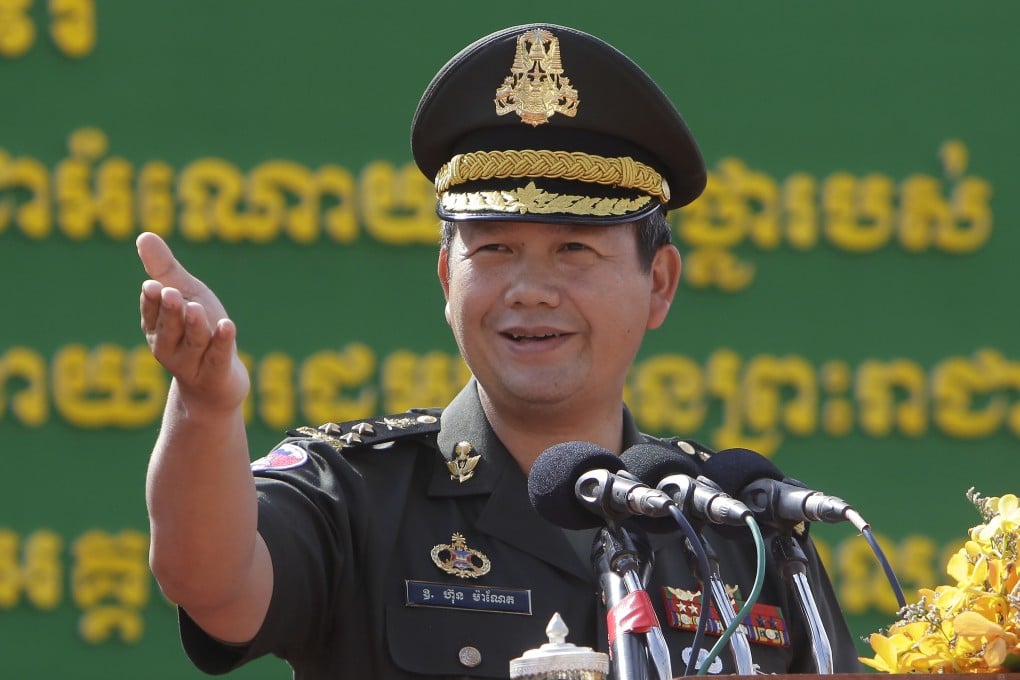Japan hosts Cambodian leader Hun Sen’s son amid bid to ‘balance China’s influence’
- The visit by Hun Manet, Hun Sen’s son and heir, comes as Japan seeks deeper ties with Cambodia to keep China’s regional security expansion in check
- The visit may reflect an effort by the future leader to portray himself as an independent leader even as his father’s regime is reliant on China, an analyst says

Cambodian Prime Minister Hun Sen’s eldest son and heir Hun Manet began his visit to Tokyo on Monday with a meeting with Japan’s foreign minister, where both agreed to cooperate on the worsening political and human rights crisis in Myanmar.
No details were given on how they would achieve this but Hun Manet, who is commander of Cambodia’s army, accompanied his father to Naypyidaw last month in an effort to engage the generals who seized power in February last year.
Japan’s Foreign Minister Yoshimasa Hayashi had praised Hun Sen’s move as part of efforts to seek a breakthrough in the turmoil, even as he expressed concern over the ongoing violence against civilians.
Experts said Japan is keen to maintain friendly ties with Cambodia as part of Tokyo’s efforts to check China’s influence in the region. Cambodia in particular is heavily dependent on China – around 43 per cent of its foreign direct investment in 2019 came from China, while 70 per cent of its infrastructure projects were financed by Chinese firms, according to the Asia & The Pacific Policy Society.